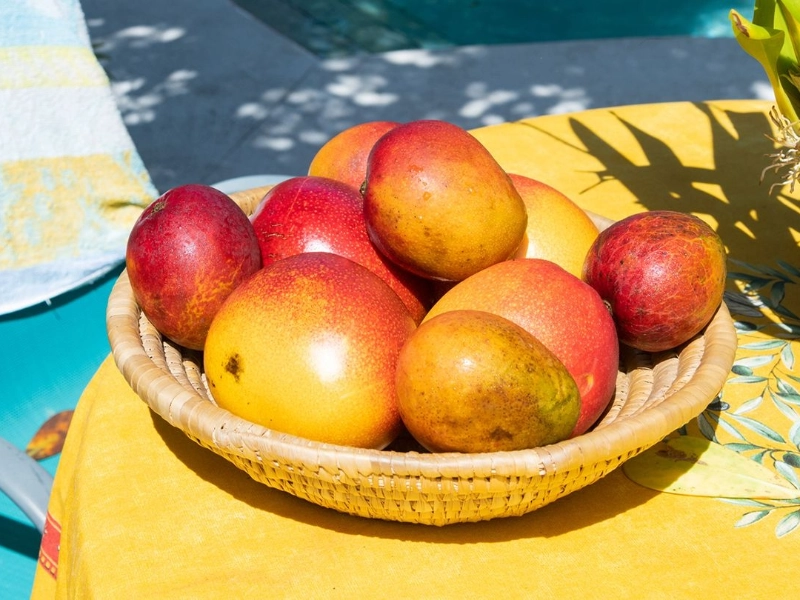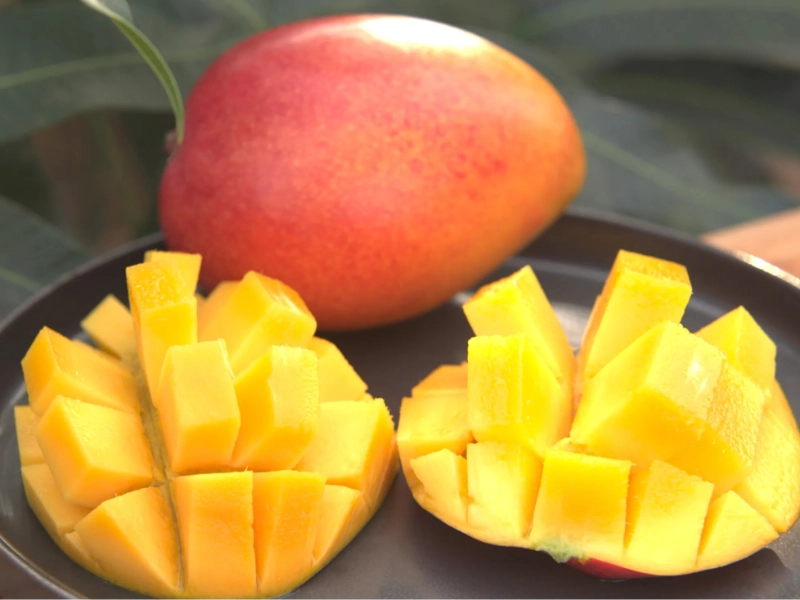Celebrated as the "king of fruits," mangoes are not only a great tropical delight but also a nutritional powerhouse. Packed in vitamins, minerals, and antioxidants, they provide several health advantages that justify their inclusion to any diet. The nutritional profile of mangoes is investigated in this paper together with its main ingredients and ways of supporting general health. Find the reason this vivid fruit should be a regular part of your diet.

Mangoes abound in important vitamins, including vitamin C and vitamin A. About 100% of the daily advised dose of vitamin C comes from one cup of mango, which is vital for strengthening the immune system and encouraging skin health. Additionally assisting iron to be absorbed helps vitamin C prevent anemia. Mostly in the form of beta-carotene, mangoes also provide a high dose of vitamin A. Maintaining good vision, boosting the immune system, and guaranteeing correct skin function all depend on this antioxidant. Moreover, mangoes include various B vitamins, including B6, which is very important for brain metabolism and condition. These vitamins assist several body activities and help turn food into energy. Mangos will help you to readily boost your intake of these important vitamins, so improving your general health and well-being.

Apart from vitamins, mangoes offer significant minerals that support several body processes. Mangoes contain one of the important elements, potassium, which is necessary for normal muscle action and blood pressure control. Mangoes are a heart-healthy food since enough potassium intake is connected to lower risk of heart disease and stroke. Mangoes also contain magnesium, which is essential for muscle action, energy generation, and bone strength. This mineral improves nervous system operation and helps control blood sugar levels. Including mangoes in your diet can help you guarantee sufficient intake of these vital elements, thereby enhancing your general condition. Mangoes are a healthy choice for everyone trying to enhance their diet as their minerals and vitamins combine to be quite beneficial.

The dietary fiber count of mangoes is also rather important. Since it controls bowel motions and helps avoid constipation, fiber is absolutely essential for digestive health. About five grams of dietary fiber included in a medium-sized mango help to explain the advised daily consumption for adults. Eating foods high in fibers, such as mangoes, can assist to strengthen general digestive capacity and support a good gut. Furthermore connected to several health advantages outside digestion is dietary fiber. Through encouraging sensations of fullness and lower total calorie consumption, it can help with weight control. Additionally linked to a reduced risk of chronic diseases including type 2 diabetes and heart disease are high-fiber diets. Mangoes will help you increase your fiber intake and improve long-term health if you include them into your meals and snacks.

Mangoes are bursting with phytochemicals and antioxidants that are absolutely vital for shielding the body from inflammation and oxidative stress. These substances fight free radicals, which could harm cells and lead to chronic illnesses. Mangiferin, quercetin, and beta-carotene are just a few of the important antioxidants in mangoes. Known for its anti-inflammatory qualities, quercetin might help lower some cancer and heart disease risk. Another significant antioxidant in mangoes, mangiferin has been investigated for possible anti-cancer effects and metabolic health support. Mangoes help you to boost your consumption of these good molecules, so boosting general health and well-being.
Mangoes are rather flexible and fit for many different kinds of cooking. To improve taste and nutrients, they can be consumed fresh, blended into smoothies, or included into salads. Mangoes also shine in salsas, a reviving variation on grilled meats and shellfish. Many cuisines call for their sweet taste since it complements both savory and sweet meals. Mangoes can be used in desserts, such mango sorbet or fruit tarts, for those wishing to explore the kitchen. They also provide a tropical touch to any meal when combined into sauces or condiments. There are so many ways to eat mangoes, hence including this fruit into your diet can be fun as well as good for your health.
Knowing their seasonal availability and how to choose the best fruit would help one to appreciate mangoes. Usually in season in the summer months, mango availability differs depending on the location. Fresh mangoes are best enjoyed in many nations between late spring and early summer. But because to worldwide trade, mangoes are usually available in grocery shops year-round. Choose mangoes based on their somewhat soft to the touch indicator of ripeness. The variety will affect the color of the skin, hence texture and scent are also rather important. A ripe mango will smell sweetly, like fruit. Choosing ripe mangoes will help you to maximize the nutritional value of the fruit by guaranteeing its tastiest and most delicious taste.